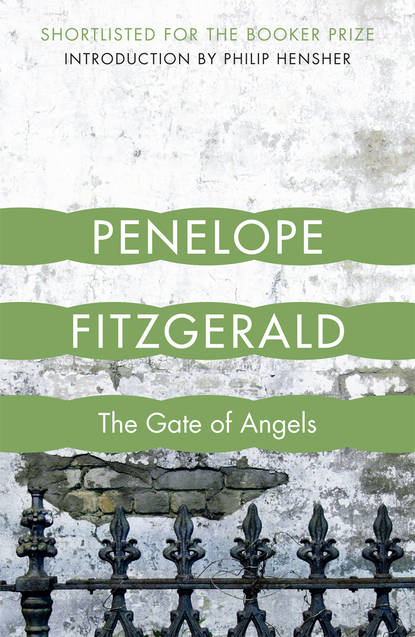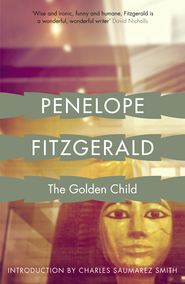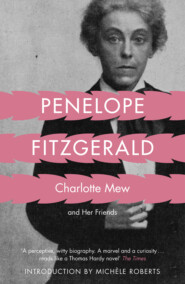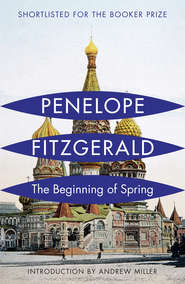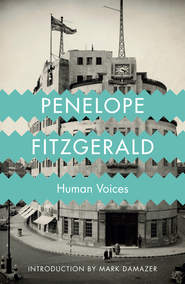По всем вопросам обращайтесь на: info@litportal.ru
(©) 2003-2024.
✖
The Gate of Angels
Автор
Год написания книги
2018
Настройки чтения
Размер шрифта
Высота строк
Поля
‘Admit the wrong direction, and go back to what can be known through the senses. If they don’t depend on true evidence, scientists are no better than gossips.’
Professor Flowerdew had, he said, been fortunate. The university during the last ten years or so had been surprisingly ready to create – by Grace, to use their own terms – posts, and even professorships, which would last only for as long as was thought necessary. There were, for instance, travelling bachelorships ‘for the encouragement of investigation into foreign countries’, established by the Special Board for Military Studies – scholarships in other words for spies. As a kind of counterweight some of the appointments had no apparent practical use whatsoever. Herbert Flowerdew had been offered a temporary Professorship in Observable Experimental Physics.
Fred was shocked by the word ‘fortunate’. He felt that luck and chance should have no place in science, and above all at the Cavendish.
‘The Cavendish is becoming very crowded,’ said Flowerdew. ‘There is a pot-house atmosphere. I have arranged to have a small laboratory of my own in the Department of Mechanical Philosophy.’ His own experiments were in the principles of equivalence and reciprocity. He couldn’t, then, be altogether cracked.
But was it, Fred broke out in distress, that he had no interest in the work of Wilson, and Rutherford, and Planck, and Niels Bohr, whose almost inaudible lectures Fred had also heard that year?
‘Not at all. I follow all that they printed with great interest, both through the German and the English journals. I am impressed with their results. I admire their great talents. But when I think of their future I hear the sadness of old men and those whom the gods have deserted.’
Flowerdew needed an assistant at £100 a year, which he would pay himself, to instruct his students in physics and take them off his hands generally. He could guarantee this assistant, too, a Junior Fellowship at St Angelicus. There was a vacancy in the college, not through death, but through a lecturer in Propellant Explosives being unexpectedly recalled to Germany. In explaining this Flowerdew made it quite clear that the Junior Fellow would also have to lend a hand with the library, the catering and the accounts, act as assistant organist, and keep the collection of fifteenth-century musical instruments in repair and, as far as possible, tuned. Here Fred jibbed.
‘I can’t do that. All I could ever do was to help out at home with the hymns. I’ve never even seen a fifteenth-century instrument.’
‘Let us forget them for the moment. Don’t answer me now. Think it over.’
By ‘don’t answer me now’ Flowerdew had meant, ‘don’t accept straight away because you’re a scholarship boy from a rectory with nothing to live on.’ Fred was struck by this, and by other things which the Professor was not doing. He was not, like the great ones of Cambridge, keeping a princely look-out for young followers. He wasn’t asking Fred to agree with him, either, about the unsoundness of atomic physics; not that. Clearly he was a lonely man, but he had made nothing of his loneliness, either. And there was a lack, not of self-confidence, but of self-assurance, in all this, that Fred liked. He was not vain himself, and only the humble can value humility. It appealed to him, too, that Flowerdew stood as one against many, not because he knew too little, but because he understood too much. ‘Stood’ was not the right word, though. He was no more likely to make a stand than Fred’s own father, gazing out of the window at the Rectory.
Without seeing Flowerdew again, Fred went home to the Rectory, where he was asked by the neighbours (called in to celebrate his First Class in physics) what he expected to do next, and, by the Rural Dean, whether he was going to blow them all up. Then Fred went with two of his friends for a walking holiday in Austria. For the first time in his life he felt he had no obligation to anyone. They went to the Salzburg Alps. At Bruckmann’s Hotel, by candlelight, the two waitresses and the daughter of the house appeared at the door of the three-bed commercial travellers’ room which they had taken for cheapness’ sake. Fred was the only one not asleep. The situation struck him as like a folk tale. He woke his two friends, and went down with the daughter, who had the keys, to fetch two bottles of wine from the dining-room. More she dare not take. When they got back upstairs the others were all sitting stiffly on the edge of the beds, not undressed, not even speaking, as though waiting for permission to begin. Fred found it hard not to laugh, then they all laughed. The wine was Grüner Weltliner, tasting violently of pepper. They blew out the candles and opened the shutters, to let the stars shine in. The room smelled of the just extinguished candlewicks, of the peppery wine, of strong young women’s flesh and of starch, because the maids had been doing the ironing.
Next morning they went on and up the mountain to the haymeadows, past the first rocky slopes where the wild raspberries were almost over, through ice-cold shadow into the sunlight of the upper slopes and almost to the edge of the glacier. They sat down, and the elder of Fred’s two friends, who was a chemical engineer, told them that he was going back to Bruckmann’s, as he had fallen in love with one of the waitresses. They had their valises with them. He picked up his, took his stick and walked away down the path, the stones slipping away beneath his boots. The remaining friend said that he was doing all he could to get to Manchester, in the hope of training with Rutherford. Fred must come too, everything of importance was happening in Manchester.
‘No, I’m going back to Cambridge. Herbert Flowerdew has offered me a post as his assistant.’
The friend burst into tears. He had been working far too hard and for too long. He regarded Fred as lost. ‘You never said anything about this before.’
‘I’ve only just decided to accept.’
‘Come to Manchester.’
‘I’ve decided to accept.’
4 (#ulink_79f7dbf8-fdd9-547d-927f-4d978a06cccb)
Dinner at St Angelicus (#ulink_79f7dbf8-fdd9-547d-927f-4d978a06cccb)
WHEN James I said that a man should pray at King’s, dine at Trinity, and study at Jesus, he added (on one occasion at least) ‘and he should sleep in peace at Angels’. This did not mean that you got a poor dinner at St Angelicus – quite the contrary, – only that room could hardly have been found at the table for the King’s bodyguard and followers. Adapting to the allotted space was, and continued to be, a matter of practice. At other colleges, sherry was served in the combination room, dinner in Hall, brandy in some other sanctuary. At Angels there was the Hall only. Gas-lighting had never been introduced, or even suggested. The candles burned in ancient holders which grasped them in twisted silver rings that held them absolutely straight. Yet that was hardly necessary, since Angels was the only Hall in Cambridge which was not a meeting place of cold draughts. The college silver, acquired at intervals over four hundred years, was largely Spanish, mostly bought from needy church treasuries. Possibly not all of it had been designed as tableware. There were silver objects whose use was not known – a set of instruments, for example, which appeared to be tooth-pullers, and another like a horse comb. Of what use could this have been in the iglesia mayor of Morella? However, they glittered on the table every night, and were put back into drawers in the silver pantry. There was an endearing carelessness about it all. Round the table (not the High Table, because there was only one), the company, sitting close together, looked like friendly conspirators. They drank manzanilla imported for them from Sanlúcar, until the butler came in. ‘The Master is on his way.’ Everyone got to their feet. With his chair drawn back for him to exactly the right distance, the Master needed no guidance, and none was offered. The Chaplain pronounced a grace which was used on domestic occasions by Benedict XIII himself, followed by the menacing Spanish words – El Juicio Final descubrirá las secretas de la Historia. All the chairs trundled back, and those who had dropped their napkins disappeared for a moment, recovering them. The manzanilla continued with the soup, and changed to champagne for the fish course only. After that it was claret at St Angelicus. At the end the guests were always offered preserved fruits, of the kind which failed to poison their Founder.
Only one guest could be invited at a time, and the honour went strictly in turns. One who came quite often, since several of the Fellows were fond of inviting him, was Dr Matthews, the Provost of James’s. He was a mediævalist and palaeographer, who, as a form of relaxation, wrote ghost stories. If he had written one recently, he brought it with him in an envelope and read it aloud after dinner. He did not care to be asked to do this. But the shape of the envelope, if he had it with him, was clearly visible in his overcoat pocket. His host for the evening would speak unobtrusively to the butler. ‘Foley, I want to know whether Dr Matthews brought a large envelope with him.’ Foley was quite up to this. ‘He didn’t, sir, not tonight, sir.’ Then there would be no reading, but perhaps music. In some colleges – King’s, for example – they talked all evening, but then King’s was full of historians and philosophers, who had no need to relax. What else did they ever do? But the Fellows of Angels, by statute, were all scientists, or mathematicians.
Fred’s own unhappy moments in college were connected with the cittern, the vielle, the zinke and so forth, which he wasn’t persuaded were ever meant, even if tuned, to be played together. It was only the knowledge that the blind Master delighted in them that kept him tinkering away at them. He was more at home with the positive organ, with a keyboard of twenty-two long and thirteen short keys, which was installed in a shadowy corner of the little chapel. Fortunately, the bellows were in poor condition, and it could not be pumped. But Dr Matthews, in any case, was not particularly fond of music. In fact, he was tone-deaf, preferring to look at old manuscripts and to examine ancient inscriptions. He had a running joke, for example, with the Master about the strangely tall and narrow gate, as old as the college itself, in the south-west wall. ‘The only opening, dear Master, – apart from your front entrance – and quite inexplicable, since the only thought in the mind of the builders seems to have been to keep visitors out.’ There was no inscription on the gate, and no entry, in the records of the college expenses, for installing it. On the other hand it was noted in the annals that it had twice been found standing open, once on the 21st of May 1423, the night of Pope Benedict’s death, and once in 1869, when the first women’s college, though not, of course, officially part of the University, was permitted to open. ‘There was no mention, on either occasion, of who opened your gate,’ said Dr Matthews, ‘nor of who shut it again.’
‘No-one, not even the Master, has any authority to do either,’ said the Treasurer.
‘But if anyone had, or even if they had not, and if it were to stand open, who or what do you imagine might come in?’
‘I should not like to think about that,’ said the Master.
Dr Matthews turned to another subject – the manuscripts in the Angels’ library. Earlier on he had been looking, he said, at a mediæval Book of Hours, fantastically illuminated by Jean Pucelle. Wherever there was a space between the lines on the page it would be filled with a long, lean, sinuous tail, belonging to a rat, a monster, or a devil. The devil’s tails were frequently curled, like a noose, round the neck of unfortunate men. ‘Ready, I fancy, to carry them off,’ said Dr Matthews, with his delightful smile. He pointed out that most of these victims were alchemists or heretical arithmeticians, and that in the fourteenth and fifteenth centuries all his kind hosts, at present sitting round the table, might well have been condemned to hell.
The Fellows of St Angelicus listened to Dr Matthews with amusement. He was a great scholar, but his lifework seemed to them musty. Dr Matthews, for his part, was amused by the Angels. Science, he thought, was leading them nowhere, and quite conceivably backwards.
5 (#ulink_613c7aba-e6e7-537e-aba1-d574dd176bd0)
At the Rectory (#ulink_613c7aba-e6e7-537e-aba1-d574dd176bd0)
AT the end of his first year as a Junior Fellow, Fred thought it only right to tell his father that he was no longer a Christian, but in such a way as to distress him as little as possible. All this sounded more like 1857 than 1907. He had heard family stories, distant echoes or reminiscences of giant battles from what seemed heroic days. Two of his uncles had quarrelled over Strauss’s Leben Jesu and struck each other and one of them had caught his head on the edge of the fender and broken his skull. The other one, Uncle Philip, had been known for the rest of his life, though never in the family, as Slayer Fairly. In his mother’s family there were some who hadn’t spoken to each other for many years, and there were women, once young, who had broken off their engagements because their betrothed had ceased to believe and who had bleached and withered into spectres of themselves behind church missionary society typewriters and the stalls of jumble sales. Fred, who was kind-hearted towards the past as well as the present, felt that he ought not to fall short, in the new century, of what had cost so dear. He ought to go home and explain to his father in person, even giving his reasons, as sons had once done on this subject where reason, not much to its credit, is powerless. So much was only decent politeness. But his father was certain to be deeply distressed. The time of day for discussing this, long enough to give pain and, if possible, to lessen it to some extent, was between five and six o’clock, when his father sat patiently in his study ready to give advice to his parishioners, who, however, always chose some other time to come. The study windows faced the front lawn, and in summer Fred and his two sisters had not been supposed to cross it, between five and six, so as not to disturb the pastoral hour. Fred, Hester and Julia did, of course, cross it, as Apaches, flat on their stomachs, close to the bitter-smelling roots of the laurel hedge where the cat left the remains of her mice. Looking, in those days, up the slight incline of the lawn Fred used to see his father at his desk, determinedly wide awake, his head a little on one side, presumably to show that he was willing and ready to listen, staring out into the late afternoon.
The best thing would be to explain at once that as from the beginning of that summer he was an unbeliever, but his unbelief was conditional. He had no acceptable evidence that Christianity was true, but he didn’t think it impossible that at some point he might be given a satisfactory reason to believe in it. And then you’d give it another chance, his father was likely to answer. – That’s very handsome of you, Freddie. What would you consider a satisfactory answer? – Well, Father, put it another way. I want to know the truth about the way things are. I can’t take them on trust, that would be the waste of the education you’ve given me and such brains as I’ve got. – Now – the ‘now’ didn’t sound quite as Fred wanted it, but no matter – the only evidence we can get is from our own senses and from the senses of other people who have gone before us, and can communicate what they found out through writing. – Like the Gospel writers, his father would say – even if they were only a committee. Do you consider they were wasting their time? Yours too, of course. – Do what he could, Fred always found that when he talked to his father, who was not at all deaf, he raised his voice slightly, while his father countered by talking even more quietly than usual. – However, Father, he would go on. You stay close to experience, you see the resemblances between things and the continuity of one idea from another, and gradually, through many lifetimes, everything becomes explained. As soon as something’s completely described, it’s explained – like the anatomy of the human body, for instance. There’s no more to say about that, it can be described, therefore there’s no mystery in it, it’s ordinary. Well, the time will come when we shall see everything that once seemed extraordinary as ordinary. – Would you prefer that? his father would ask doubtfully. Would you, Freddie?
All this time Fred saw himself walking up and down the study, while his father sat there with his green spectacle-case in his hand, but this walking up and down might suggest that he wasn’t sure of himself, so he sat himself down, in his imagination, in one of the not too comfortable chairs. His father, meanwhile, would in all probability go back to his question, the one that had not been answered. – You haven’t told me yet, Freddie, what you would consider a satisfactory reason for believing that Christ rose from the dead? – Fred saw himself here listening to his father’s voice, in order to judge how much his feelings had been hurt. The next thing would be a knock on the door, as his mother was unable to leave anyone alone in the study for more than twenty minutes without asking them whether they would like to take a little something, perhaps barley water. The barley water was kept on the slate window-sill of the larder, in a jug covered with muslin weighed down at the edge by blue beads.
At this point he saw that he would have to start the discussion at a different point altogether. It was absurd for him to sound as if he was lecturing his father. What he really wanted to explain, stage by stage, was how the crawler across lawns and reliable Sunday choirboy who had sung, with all his heart’s conviction,
Teach me to live that I may dread
The grave as little as my bed
had become what he now was, a man with a mind cleared and perpetually being recleared (because there was a constant need for that) of any idea that could not be tested through physical experience. There were no illusions left there now. The air was pure. But it had happened gradually, and although Fred wasn’t much given to talking about himself he would have, on this occasion, to account for himself gradually. He would have to describe for his father, step by step, how he had expelled the comforting unseen presences which, in childhood, had spoken to him and said: Give me your hand. What is completely described, however, he kept reminding himself, is completely explained.
He got up early, biked to the station, left his bike there and took the train to Blow Halt, changing at Bishop’s Leaze. The whole village, from wall to wall of its cottage gardens, blazed with flowers, early phlox and bean-flowers contending with raucous gusts of scent, early roses red and white, pot marigolds, feverfew which was grown here as a garden plant, ferocious poppies and cornflowers, peonies, sweet williams still in flower, herb of grace, Russell lupins, pinks. Nature here was certainly not at her most natural. Most of the cottagers knew where to ask for field manure, the postman and the policeman, seen working every evening in their gardens in their shirtsleeves, had their own arrangements for getting it, and every household emptied its tea-leaves three times a day on the soil, and by night the contents of the earth closets. There was nowhere in Blow to buy vegetables and it never occurred to anyone to buy any. The station grew roses and beans, and large marrows striped like a tom-cat. Even the weeds were not more luxurious than what was grown deliberately.
At Blow Halt he was Mr Fred and had once been Master Freddie, though, once again, he couldn’t remember when the change took place. This was Ellsworthy, the station master, who had become Old Ellsworthy.
‘We stopped for five minutes outside Bishop’s Leaze,’ said Fred, ‘why was that, do you think?’
‘I don’t know,’ said Ellsworthy. ‘I shall have to make enquiries about that.’
‘Couldn’t you telephone down the line?’
‘I could.’
Ellsworthy walked with him to the barrier, watched by the very young porter who was lining up the milk-churns. A certain amount of milk always got spilled on the platform, giving it a faint smell of a nursery sink, drowned at the moment by the bean-flowers and the meadowsweet.
‘How am I going to find them at the Rectory, Ellsworthy?’
‘Why do you ask me, Mr Fred?’ Fred didn’t know, he hadn’t meant any harm. He knew very well, however, that the country is not a place of peace, and that it was difficult to tell what might give or have given offence, which made it a good preparation for life at a university. In this instance, it had probably been a mistake to mention the unscheduled stop at Bishop’s Leaze. ‘Why do you ask me about the Rector?’ repeated Ellsworthy, with controlled fury. ‘You can’t accuse me of being a church-goer.’
‘I don’t accuse you of anything,’ said Fred. Ellsworthy relented a little, and asked him how things were in London. Fred explained that he was still at Cambridge, but sometimes it was handier to go up to London King’s Cross and make the exchange there.
‘Yes, London’s useful for that,’ said Ellsworthy. In the field next to the station fence an old horse, once grey, now white, moved a few sedate steps away. This was a token retreat only, it was many years since the train’s approach had given warning that it might be required to pull the station fly. The fly mouldered away now, its shafts pointing upwards, in the corner shed. On the horse’s hollow back, as it came to a standstill, the elder flowers fell gently.
There was a short cut through a wicket gate across the field to the Rectory, but Fred could see that it was jammed fast with nettles and trails of blackberry. He could also sense that Ellsworthy was waiting until he pushed the gate to tell him that it was stuck and that he’d do best to go round by the road.
‘I’ll go round by the road,’ he said.
‘I can remember when you’d have jumped that. You were quite agile as a boy. You wouldn’t have made anything of it.’





